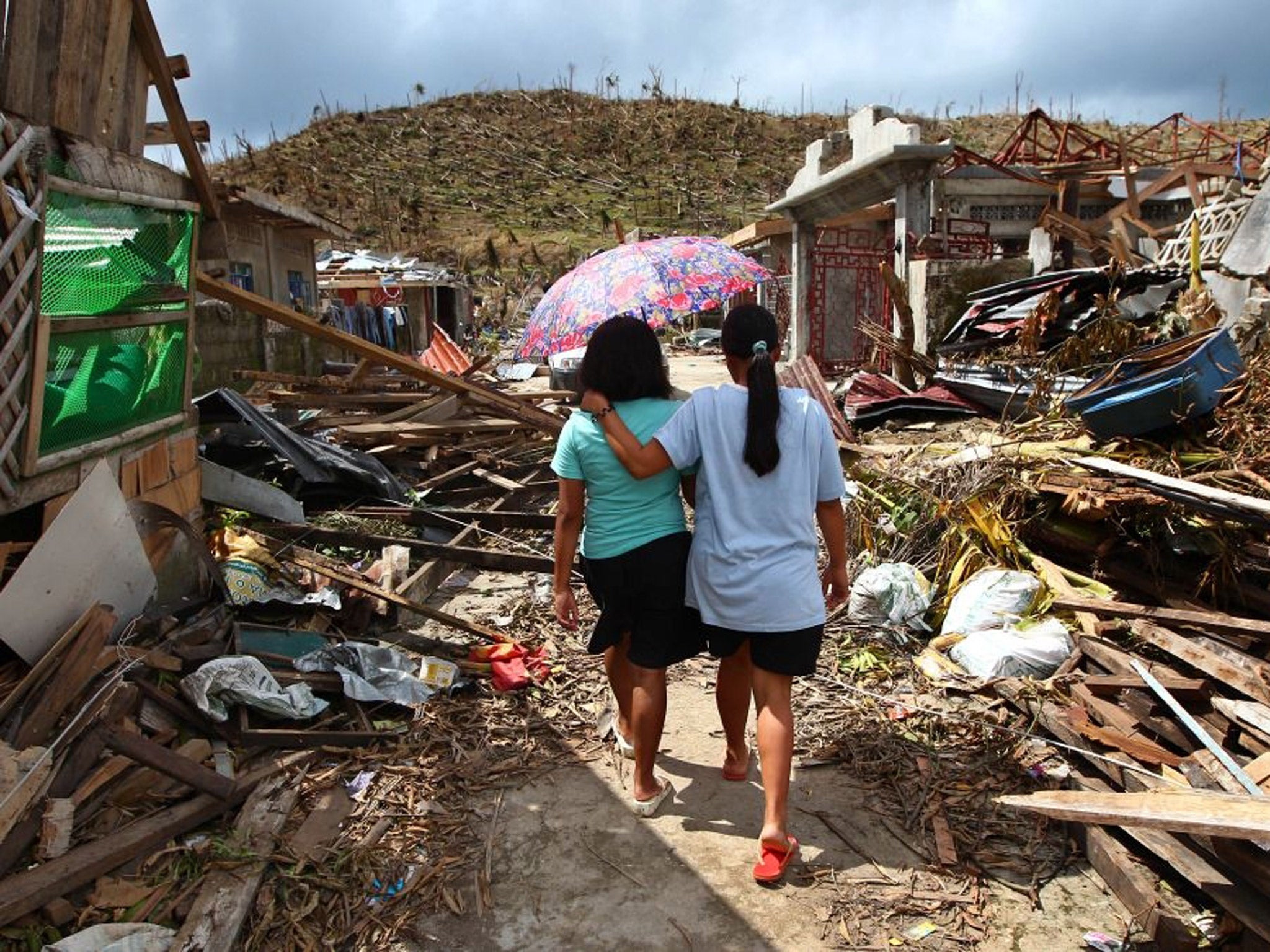Whether it’s Typhoon Haiyan or Rana Plaza, why are some victims more worthy than others?
For victims of disaster, the nightmare doesn’t end when the media averts its gaze

Your support helps us to tell the story
From reproductive rights to climate change to Big Tech, The Independent is on the ground when the story is developing. Whether it's investigating the financials of Elon Musk's pro-Trump PAC or producing our latest documentary, 'The A Word', which shines a light on the American women fighting for reproductive rights, we know how important it is to parse out the facts from the messaging.
At such a critical moment in US history, we need reporters on the ground. Your donation allows us to keep sending journalists to speak to both sides of the story.
The Independent is trusted by Americans across the entire political spectrum. And unlike many other quality news outlets, we choose not to lock Americans out of our reporting and analysis with paywalls. We believe quality journalism should be available to everyone, paid for by those who can afford it.
Your support makes all the difference.The Daily Mail headline a couple of days ago read: “Two Americans among 1700 killed in Philippines Typhoon”. An estimated two thousand Filipinos have perished but it’s the loss of two Western lives that may trigger the deployment of expensive DNA technology to the region.
Forensic identification is required to identify those bodies that have been destroyed beyond recognition by any other means.
A recent study by Carnegie Melon University in Pittsburgh highlights the human rights incongruity in access to vital DNA technology. Researchers exposed an unofficial, unspoken, global hierarchy, wherein some human remains are deemed more worthy than others when it comes to investing in DNA identification.
The technology was deployed, for example, in Bosnia and in the aftermath of the 9/11 World Trade Center attacks, but not in Rwanda or Haiti. The authors highlight the fact that, in the wake of the 2004 Indian Ocean Tsunami, DNA technology was employed to identify victims in Thailand. The area with the highest proportion of Western tourists. Non Western victims in Sri Lanka, Indonesia and other areas were not, it seems, deemed worthy of such investment.
The CMU study calls for international structures to be put in place to promote more equal access to forensic identification, ensure their fair and efficient use, and provide uniform protections to participants following large-scale conflict and disaster.
In April the collapse of the Rana Plaza Factory in Bangladesh made international headlines. More than 1,130 workers, mainly women, were killed as a result, some would argue, of corporate manslaughter.
Despite allegations of overcrowding and human rights abuses, the owners of Rana Plaza are unlikely to pay the price. Killing one person in Bangladesh is punishable by hanging. Incarcerating poor workers in a dilapidated building which collapses and causes hundreds of needless deaths however, can be done with impunity.
A few weeks ago Primark announced that it had authorized a second wave of payments to victims and their families. The first installment came to the princely sum of £130 per victim. Those who received the paltry compensation said it ran out within weeks, others say they have received nothing. Matalan, Benetton and Bonmarche were also reportedly operating sweat shops out of Rana Plaza. Apparently these companies have not offered any compensation.
It seems the life of a sweat shop worker is worth even less than the cheap garments over which they tediously toil.
According to Action Aid, six months on, 94% of Rana Plaza victims are still awaiting compensation, 92% of survivors have not gone back to work, with 63% of those reporting physical injuries including amputations, paralysis and severe pain.
Exacerbating the families’ battle for justice is the lack of bodies, which if presented, would trigger their compensation. Although the technology has been made available to identify Rana Plaza victims, problems with incompatible software have plagued the process.
Apart from the obvious emotional implications of this in relation to the grieving process, there are also legal, social and economical ramifications. Death benefits are being withheld on the grounds that the government has not been able to formally identify all the victims.
For the victims of conflict and disaster, the nightmare doesn’t end when the world’s media averts its gaze. For the survivors and the destitute, despairing families of the deceased, the cost of being a third class global citizen is never ending. Human rights are for all, not just those who can afford to buy them.
Find out how you can help in the Phillipines aid effort here: http://www.independent.co.uk/news/world/asia/typhoon-haiyan-as-aid-agencies-mount-mission-to-help-victims-of-monster-storm-how-can-you-help-in-the-relief-effort-8931185.html
Join our commenting forum
Join thought-provoking conversations, follow other Independent readers and see their replies
Comments